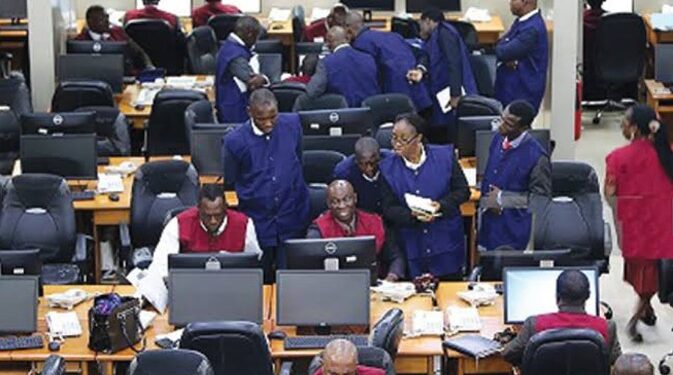The Banking Hall
$267.96M Foreign Trade Payments in First Four Months of 2025-CBN

Nigeria’s fulfilment of foreign trade transactions through Letters of Credit (LCs) rose by 3.68% year-on-year to $267.96 million in the first four months of 2025, up from $258.46 million in the same period of 2024.
This was disclosed by the Central Bank of Nigeria (CBN) in its International Payments Data published on its website.
A Letter of Credit is a written commitment issued by a bank on behalf of an importer, guaranteeing payment to an exporter once shipment and proper documentation are confirmed. It is commonly used in the importation of visible goods.
The fluctuations in LC transactions reflect mixed activity in Nigeria’s trade environment:
- January 2025: LC transactions stood at $64.55 million, compared to $58.33 million in January 2024.
- February 2025: Recorded the highest monthly volume at $95.59 million, though this was a 6.84% drop from $102.6 million in February 2024.
- March 2025: LC transactions declined to $43.53 million, down from $54.03 million in March 2024.
- April 2025: Showed a recovery, with LCs rising to $64.29 million, marking a 19% increase from March 2025 but a 1.6% decline from April 2024.
Though the four-month total marks a slight annual increase, the month-on-month trend reveals volatility. February saw a 48% increase from January, followed by a 54.4% decline in March. The figure rose again in April by 47.7%.
Analysts suggest that the improvement in LC usage reflects growing confidence in Nigeria’s external sector, supported by steady increases in net foreign reserves this year. Until recently, many Nigerian importers struggled to open LCs due to limited foreign exchange and weak reserves, often resorting to prepayment for imports. The recent rise suggests a gradual easing of these constraints.
However, foreign currency access remains limited for many businesses, and ongoing external debt servicing obligations continue to strain Nigeria’s reserves. The CBN’s data also showed significant foreign exchange outflows for debt repayment in 2025, with $2.01 billion spent on external debt servicing between January and April 2025, marking a 50% increase compared to the same period last year.
Debt service costs now account for more than three-quarters of the country’s total foreign outflows, highlighting the mounting pressure Nigeria faces in managing its external obligations amid persistent foreign exchange challenges and a fragile revenue base.
Despite these challenges, Nigeria’s foreign exchange reserves remain strong, standing at $38.56 billion as of May 22, 2025.



